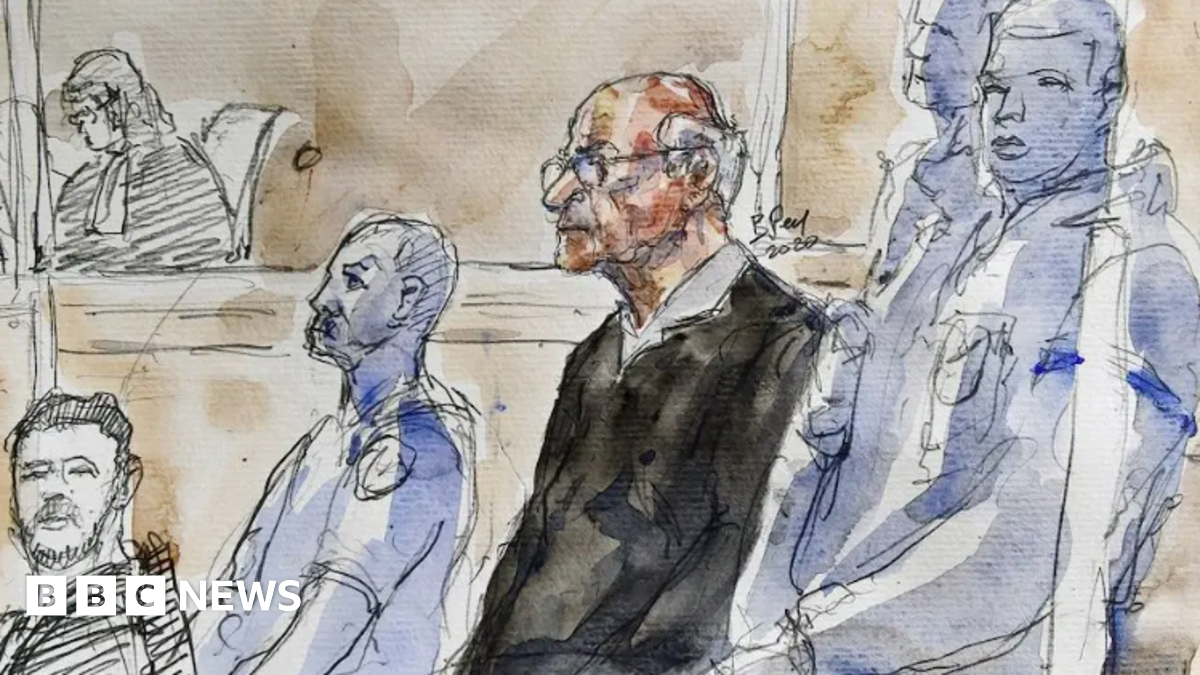Analysis: Trump's Impact On The US System And International Relations

Table of Contents
Trump's Enduring Shadow: An Analysis of His Impact on US Systems and International Relations
WASHINGTON, D.C. – Four years after leaving office, the shadow of Donald Trump's presidency continues to loom large over the American political landscape and international relations. His impact, a complex tapestry woven from policy shifts, rhetorical bombast, and institutional upheaval, is still being unraveled. While some effects are readily apparent, others are subtle, long-term consequences yet to fully manifest. This analysis examines key areas where Trump's legacy remains deeply embedded.
Domestic Politics: A Fractured Landscape
Trump's presidency fundamentally altered the Republican Party, shifting its ideological center and solidifying his hold on a significant portion of the electorate. His populist appeal, fueled by anti-establishment rhetoric and a direct engagement with his base via social media, redefined conservative politics. This has led to increased polarization, making bipartisan cooperation exceedingly difficult and exacerbating existing societal divisions. The January 6th Capitol attack, a direct consequence of Trump's election falsehoods and attempts to overturn the 2020 election results, stands as a stark example of this fracturing. Ongoing legal challenges and investigations into Trump's conduct further underscore the lasting instability his presidency introduced to the American political system. Furthermore, his appointment of numerous conservative judges to federal courts, including three Supreme Court justices, has had a lasting impact on the judiciary, shaping legal interpretations for decades to come.
Economic Policy: Trade Wars and Deregulation
Trump's economic policies were characterized by a focus on protectionism and deregulation. His administration initiated a trade war with China, imposing tariffs on billions of dollars worth of goods. While proponents argued this protected American industries, critics pointed to the negative impact on consumers and global trade. The long-term effects of these tariffs are still being debated, with some economists arguing they ultimately harmed the US economy. Simultaneously, his administration rolled back numerous environmental regulations, arguing they hindered economic growth. This approach, however, led to increased concerns about environmental protection and climate change mitigation efforts.
Foreign Policy: An "America First" Approach
Trump's foreign policy was defined by his "America First" doctrine, prioritizing national interests above multilateral cooperation. This led to a withdrawal from several international agreements, including the Trans-Pacific Partnership trade deal, the Paris Agreement on climate change, and the Iran nuclear deal. He also challenged existing alliances, questioning the value of NATO and engaging in confrontational rhetoric with traditional allies. While his supporters lauded this approach as a necessary recalibration of US foreign policy, critics argued it weakened international cooperation and emboldened adversaries. His meetings with North Korean leader Kim Jong Un, while unprecedented, ultimately yielded limited progress on denuclearization. The overall impact on global stability and the US's role in the international order remains a subject of ongoing analysis and debate.
The Institutional Impact: Erosion of Norms and Checks and Balances
Perhaps Trump's most lasting impact lies in his erosion of long-standing democratic norms and institutions. His frequent attacks on the media, judiciary, and other government branches weakened public trust in these institutions. His use of executive power, often bypassing traditional checks and balances, set a precedent that may be emulated by future presidents. The ongoing debate surrounding the appropriate limits of presidential power and the need to protect democratic institutions underscores the deep and lasting consequences of Trump's presidency.
Conclusion: A Legacy in the Making
Donald Trump's presidency continues to shape American politics and international relations. His legacy is far from settled, and its full impact will only become clear over time. However, the profound shifts in domestic politics, economic policy, foreign relations, and institutional norms are undeniable. Analyzing these changes and their consequences is crucial for understanding the current state of American society and the future trajectory of the nation's role in the world. The challenges his administration created – increased political polarization, weakened international alliances, and concerns about the stability of democratic institutions – will require sustained effort and careful consideration in the years to come.

Featured Posts
-
 Court Filing Attorney Seeks Removal From Diddy Case
Feb 25, 2025
Court Filing Attorney Seeks Removal From Diddy Case
Feb 25, 2025 -
 Elon Musk Accused Of Neglecting Childs Medical Needs Grimes Alleges
Feb 25, 2025
Elon Musk Accused Of Neglecting Childs Medical Needs Grimes Alleges
Feb 25, 2025 -
 Sculpting Grief A Mothers Tribute To Sons Lost In The Lockerbie Bombing
Feb 25, 2025
Sculpting Grief A Mothers Tribute To Sons Lost In The Lockerbie Bombing
Feb 25, 2025 -
 Will Move Fast Break Things Work For Us Government Reform
Feb 25, 2025
Will Move Fast Break Things Work For Us Government Reform
Feb 25, 2025 -
 The Trump Factor Will A Rekindled Relationship Save Ukraine
Feb 25, 2025
The Trump Factor Will A Rekindled Relationship Save Ukraine
Feb 25, 2025
Latest Posts
-
 Delta Flight Evacuated Mid Flight Due To Unexplained Haze
Feb 26, 2025
Delta Flight Evacuated Mid Flight Due To Unexplained Haze
Feb 26, 2025 -
 Investigation Launched Into Bristol M4 Death Following Controversial Predator Sting
Feb 26, 2025
Investigation Launched Into Bristol M4 Death Following Controversial Predator Sting
Feb 26, 2025 -
 Frances Biggest Child Abuse Case Former Surgeon Pleads Guilty To Atrocities
Feb 26, 2025
Frances Biggest Child Abuse Case Former Surgeon Pleads Guilty To Atrocities
Feb 26, 2025 -
 Ukraines Minerals Why The Us Deal Matters Now
Feb 26, 2025
Ukraines Minerals Why The Us Deal Matters Now
Feb 26, 2025 -
 Death Threat Prosecutor Targeted By Powerful South American Gang
Feb 26, 2025
Death Threat Prosecutor Targeted By Powerful South American Gang
Feb 26, 2025
